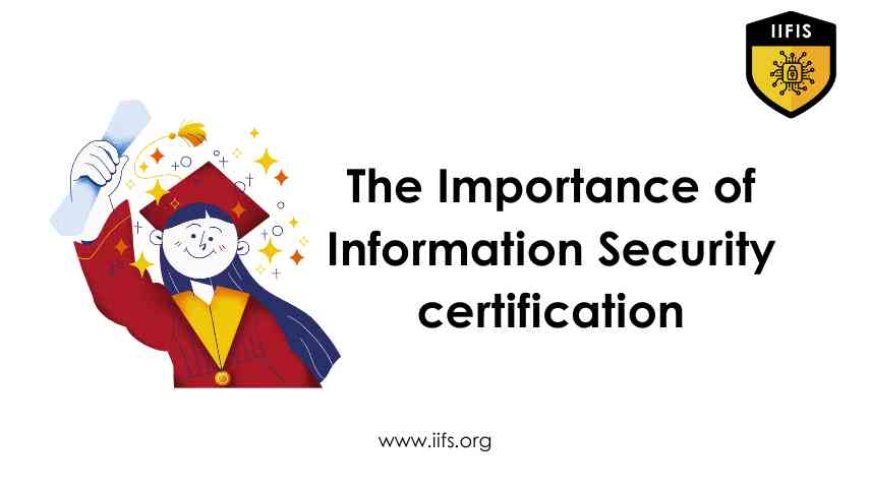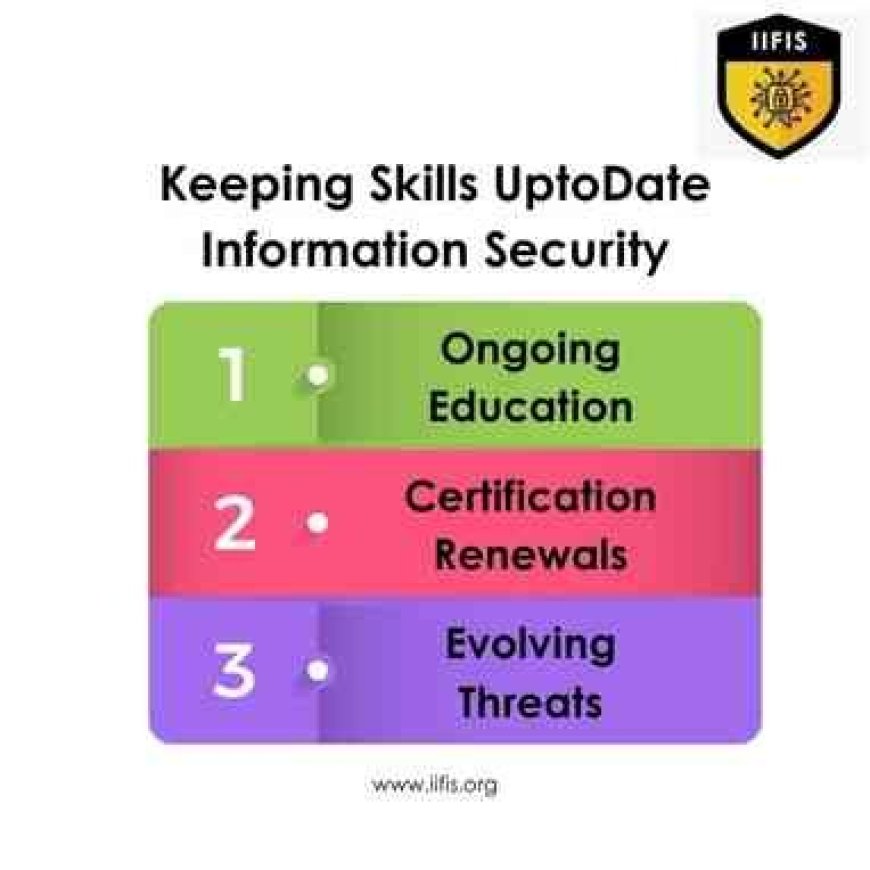Importance of Information Security Certification
Learn why Information Security Certification is essential. It helps protect sensitive data, advance your career, and meet industry standards for compliance.

Information security is more critical than ever. As businesses increasingly depend on technology to manage sensitive data and operations, safeguarding this information from cyber threats becomes crucial. Effective information security practices protect against data violations, unauthorized access, and financial loss, ensuring the integrity and confidentiality of valuable assets. Beyond compliance and risk management, robust information security fosters trust with clients and stakeholders, enhancing an organization’s reputation. Understanding and prioritizing information security is essential for maintaining operational stability and securing the future in a rapidly evolving digital world.
Information security refers to the practices, technologies, and processes designed to protect sensitive data and information systems from unauthorized access, disclosure, alteration, or destruction. Its primary goals are to ensure the confidentiality, integrity, and availability of data.
Information security encompasses a wide range of practices, including:
1.Risk Management: Identifying and managing potential risks to information systems and data.
2.Access Control: Implementing mechanisms to restrict access to information based on user roles and permissions.
3.Incident Response: Preparing for and responding to security breaches or other incidents that threaten information security.
4.Data Protection: Employing measures such as encryption and secure storage to protect data from unauthorized access and incidents.
5.Security Policies: Developing and enforcing policies and procedures to guide the management of information security within an organization.
Enhancing Professional Credibility
Certifications play a crucial role in establishing expertise and trustworthiness in the field of information security.
- Establishing Expertise: Certifications validate a professional's knowledge and skills, demonstrating their ability to handle complex security challenges. They provide a recognized benchmark of proficiency, enhancing credibility and professional standing.
- Building Trust: Certifications signal to employers, clients, and colleagues that an individual adheres to industry standards and best practices. This encourages trust and confidence in their ability to manage and secure sensitive information effectively.
Validating Skills and Knowledge
- Industry Standards: Certifications often align with established industry standards, ensuring that certified professionals are knowledgeable about current practices and technologies in information security.
- Skill Assessment: The certification process typically involves rigorous testing and practical assessments, validating a candidate's skills and problem-solving abilities in actual situations.
- Continuous Learning: Many certifications require ongoing education and recertification, encouraging professionals to stay updated with evolving security threats and technologies, thus maintaining their expertise.
Career Advancement Opportunities
Certifications have a significant impact on job prospects and career growth in information security. They serve as evidence of a professional’s expertise and dedication, making them more attractive to employers. Holding relevant certifications can open doors to advanced positions, increase earning potential, and provide opportunities for career advancement. In a competitive job market, certifications give candidates a distinct edge by showcasing their commitment to industry standards and their up-to-date knowledge of emerging security threats and technologies. This competitive advantage not only improves job prospects but also positions professionals as leaders in their field, enhancing their career path and long-term success.
Meeting Industry Standards and Compliance
Certifications play a vital role in helping organizations meet industry regulations and compliance requirements. They provide a structured framework for understanding and implementing the standards and practices necessary for regulatory dedication. By obtaining certifications, organizations demonstrate their commitment to maintaining high security standards and meeting legal obligations, which can be crucial for avoiding fines and legal issues.
Certifications ensure that organizations follow best practices and industry standards. They offer a benchmark for evaluating and improving security measures, promoting a culture of continuous improvement. By covering recognized certification requirements, organizations can improve their operational effectiveness, mitigate risks, and build trust with stakeholders. Ultimately, certifications support strong compliance efforts and reinforce a commitment to excellence in security practices.
Building Organizational Security Posture
Having certified professionals on the security team brings noticeable benefits to an organization’s security posture. Certified experts possess validated knowledge and skills, which enhance the team's capability to identify and address faults effectively. Their specialized training ensures they are adept at implementing and managing advanced security measures, ultimately strengthening the organization’s defense against cyber threats.
Certifications also contribute to overall organizational security strategies by aligning security practices with industry standards and best practices. Certified professionals bring a structured approach to security management, ensuring that policies and procedures are up-to-date and comprehensive. Their expertise helps in developing and executing strong security frameworks, conducting thorough risk assessments, and ensuring compliance with regulatory requirements. By including certified professionals into the team, organizations enhance their ability to respond to security incidents, maintain operational resilience, and achieve a higher level of overall security maturity.
Keeping Skills UptoDate

1.Ongoing Education: Certifications often require continuous learning, ensuring that professionals stay informed about the latest developments and best practices in information security.
2.Certification Renewals: Regular renewal of certifications mandates up-to-date knowledge, helping professionals maintain their expertise and adapt to new industry standards.
3.Evolving Threats: Certifications address emerging threats by incorporating new research and case studies, equipping professionals with the skills to tackle current security challenges.
4.Technological Advancements: Keeping certifications current helps professionals stay proficient in the latest technologies and tools, ensuring they can implement cutting-edge solutions.
5.Professional Growth: Ongoing education through certifications supports career advancement by demonstrating a commitment to lifelong learning and adaptation in a rapidly changing field.
Information security certification offers numerous benefits, including improved professional credibility, improved job prospects, and a stronger organizational security posture. By validating expertise and demonstrating a commitment to industry standards, certifications play a crucial role in safeguarding sensitive data and ensuring regulatory compliance. They also support ongoing professional development, helping individuals stay current with evolving threats and technologies.
Organizations and professionals similarly benefit from certifications, which contribute to a secure and compliant digital world. Institutions like the International Institute for Information Security (IIFIS) provide valuable certification programs that equip individuals with the skills needed to excel in the field. By investing in such certifications, both professionals and organizations can bolster their security measures and effectively navigate the complexities of today's digital world.
























